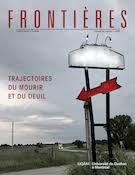Deuil compliqué selon les cultures : défis diagnostiques et limites des classifications internationales
Complicated grief remains a controversial topic. Although this concept is found in many cultures, few scientific studies address it from a transcultural perspective. This article, through the presentation of a clinical case and a literature review, describes the particularities of grief across cultures and in the context of immigration, offers a transcultural view of complicated grief and discusses limitations of international classifications to diagnose complications of grief across cultures. Culture and religion influence the mourning process, grief’s clinical manifestations and possible complications. Thus, distinction between normal and complicated mourning in an intercultural context can become complex. The concept of complicated grief is discussed by emphasizing the importance of a culturally sensitive approach to enable an appropriate clinical assessment. We highlight the central question of the meaning given to death and the symptoms experienced in times of mourning. We then discuss the relevance of a critique of the risk of medicalization of bereavement and the limits of international classifications (DSM-5 and ICD-11). We argue that future nosographies would benefit from taking into account the characteristics of complicated grief in non-Western cultures, including specific determinants such as belief systems surrounding “bad death” and cultural interpretations of dreams about the deceased.

